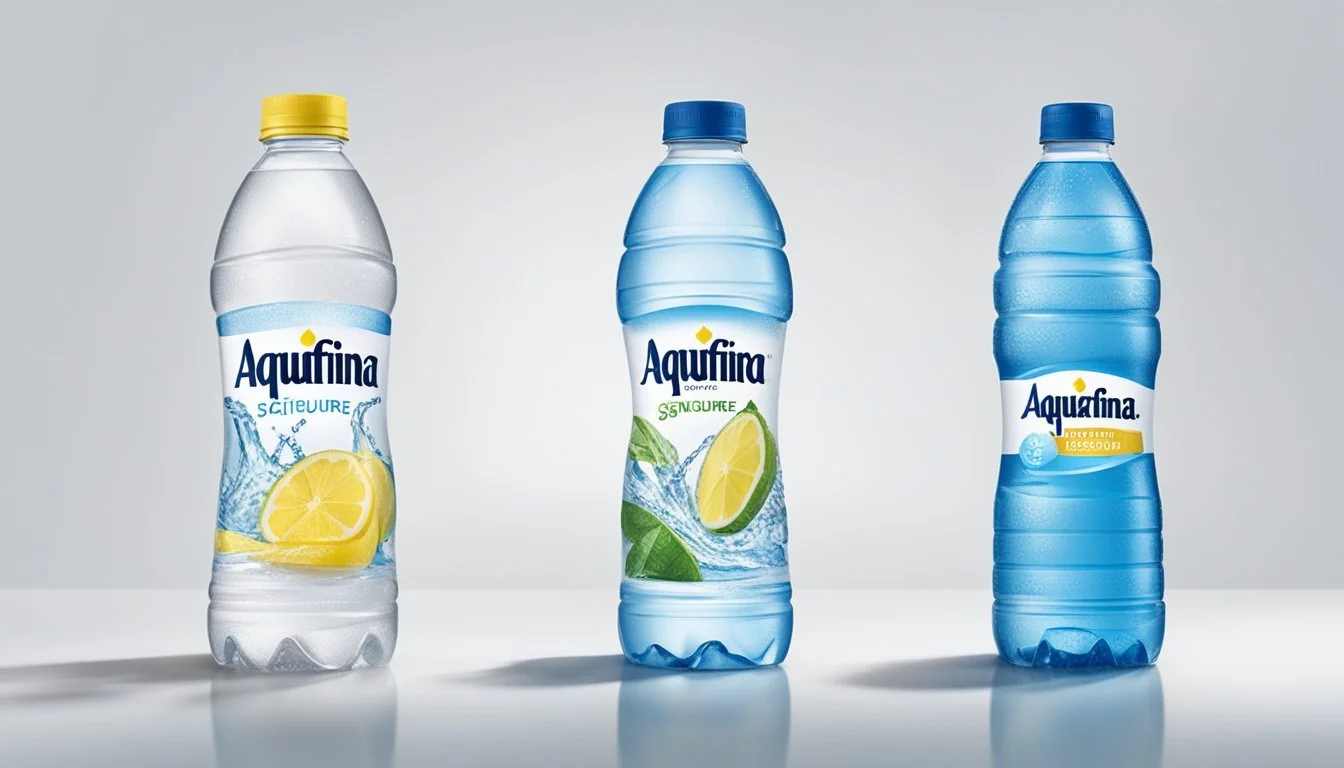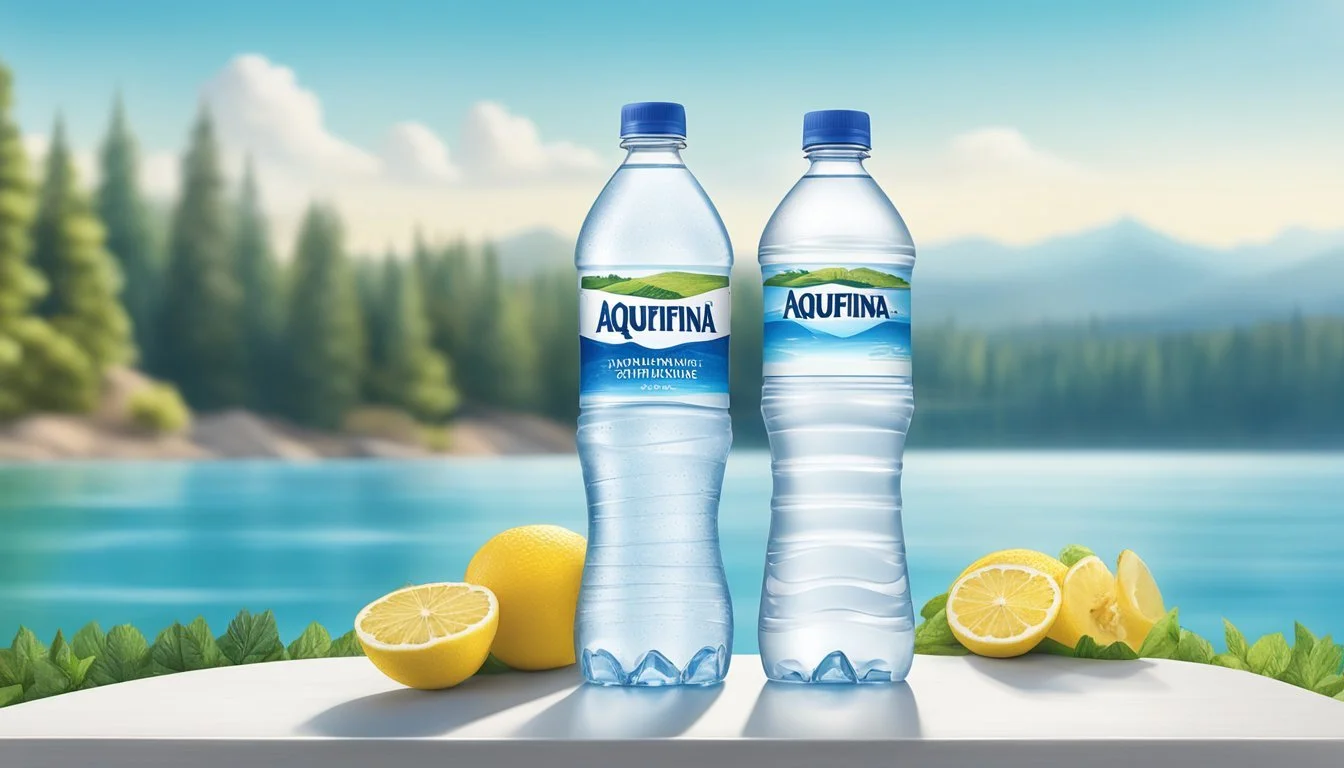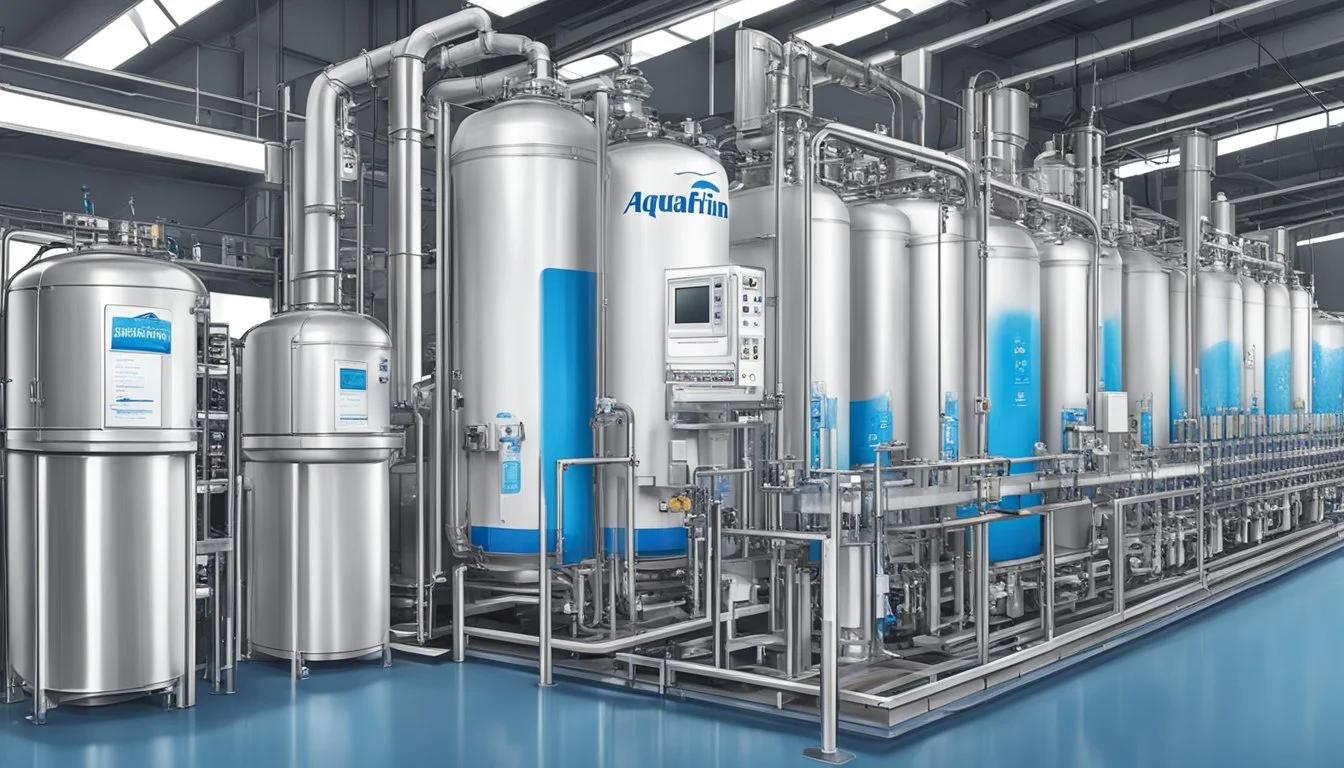Aquafina vs. Kirkland Signature
A Clear Comparison of Bottled Water Quality
When it comes to choosing between Aquafina and Kirkland Signature bottled water, consumers often wonder which brand provides the better experience. Aquafina, bottled by PepsiCo, is known for its pure taste achieved through a rigorous purification process that includes reverse osmosis. On the other hand, Kirkland Signature, sold through Costco, promises high quality at a more affordable price, drawing from multiple natural sources.
Both brands have their distinct features, flavors, and price points. Aquafina provides a crisp, clean taste with assured purity, making it a popular choice among those who prioritize purity and taste. Kirkland Signature offers great value for budget-conscious shoppers without compromising on quality.
Ultimately, the choice between Aquafina and Kirkland Signature comes down to personal preference. Aquafina’s extensive purification process appeals to those who prioritize taste and assured quality, while Kirkland Signature’s cost-efficiency and good quality can be appealing for everyday use.
Understanding Bottled Water
Bottled water comes in many types. Spring water is sourced from natural springs and usually undergoes minimal processing. Mineral water contains natural minerals and must come from protected underground sources. Artesian water is derived from confined aquifers, providing natural filtration.
Purified water undergoes extensive treatment, including methods like reverse osmosis, to remove impurities. It can originate from various sources, including tap water, which is filtered and purified before bottling.
Carbonated water includes dissolved carbon dioxide gas, creating bubbles. Glass bottles are often marketed as more environmentally friendly compared to plastic bottles, though both have environmental impacts.
The FDA regulates bottled water quality in the United States, while the EPA oversees tap water. Both agencies ensure safety standards but apply them differently due to varying distribution and packaging methods.
Water quality is paramount, with brands often boasting about their filtration and purification techniques. The demand for bottled water remains high due to convenience, perceived safety, and taste preferences.
Understanding the different water sources and types helps consumers make informed choices about their drinking water. As awareness of environmental issues grows, some consumers are opting for more sustainable options like glass bottles or reducing bottled water consumption altogether.
The Brands: Aquafina and Kirkland Signature
Aquafina, produced by PepsiCo, and Kirkland Signature, bottled by Niagara Bottling for Costco, are two popular bottled water brands available in grocery stores. This section breaks down the background, production, and unique selling points of each brand.
Aquafina: Brand Overview
Aquafina is a product of PepsiCo, one of the largest beverage companies in the world. Launched in 1994, Aquafina has become a staple in the bottled water market.
The water undergoes a rigorous purification process involving reverse osmosis, ozonation, and carbon filtration to ensure high quality and taste.
Aquafina is widely available in grocery stores and other retail outlets, making it convenient for consumers to access. PepsiCo has marketed Aquafina effectively, often positioning it as a reliable and safe choice for hydration.
Kirkland Signature: Brand Overview
Kirkland Signature water is bottled by Niagara Bottling Company for Costco, which is known for its high-quality, cost-effective private label products. The water is sourced from various natural springs and undergoes extensive purification, including reverse osmosis and UV treatment.
Kirkland Signature aims to offer premium quality at a lower price point, making it a popular choice among cost-conscious consumers.
Costco's membership-based model also provides exclusive access to this brand, fostering loyalty among its shoppers.
By maintaining high standards and leveraging its distribution network, Kirkland Signature has built a strong reputation in the market.
Source and Purification Processes
The quality and safety of bottled water often depend on its source and the purification methods used. This section explores where Aquafina and Kirkland Signature source their water and the techniques they use to ensure it is safe and pure.
Sourcing the Water
Aquafina sources water from public water supplies. This means their water originally comes from local municipal tap water sources.
Kirkland Signature water, on the other hand, is primarily sourced from natural locations. These sources include artesian wells and natural springs across the United States, such as the Crystal Geyser natural alpine spring water.
Both Aquafina and Kirkland Signature take initial quality seriously by ensuring the water meets stringent safety standards at the source.
Purification Techniques
Aquafina employs a detailed and rigorous purification process known as HydRO-7. This seven-step process uses techniques such as reverse osmosis, ultraviolet light treatment, and ozone sterilization to remove contaminants. The process ensures the removal of unwanted substances, maintaining high purity and consistency in pH level.
Kirkland Signature's water undergoes a meticulous filtration process. Key steps include reverse osmosis and ultraviolet light sterilization. The process also involves adding essential minerals and electrolytes for taste and health benefits.
Both brands ensure their water is free from harmful impurities, but Kirkland Signature's approach includes enhancing the water with minerals to improve taste and provide additional nutritional benefits.
Taste and Quality Comparison
Aquafina and Kirkland Signature bottled waters differ significantly in their taste profiles and purification processes. Both brands emphasize quality, with distinct approaches to ensuring clean, safe drinking water.
Taste Profile
Aquafina features a crisp, clean taste achieved through its proprietary HydRO-7 purification process. This system removes dissolved solids, providing a neutral flavor with no trace of contaminants.
Kirkland Signature water, while also purified, presents a slight saccharine flavor. This may appeal to some but can be off-putting to others. Taste varies with individual preference but is notably affected by the added minerals.
A breakdown of the taste attributes:
Aquafina:
Neutral
Crisp
Pure
Kirkland Signature:
Slightly sweet
Purified but with detectable mineral flavors
Water Quality and Contaminants
Aquafina utilizes the HydRO-7 system to eliminate impurities. This ensures low levels of contaminants, making it free from chlorine, lead, mercury, and other harmful substances. The water shows no PFAS chemicals or heavy metals, resulting in high purity.
Kirkland Signature water is similarly purified but contains added minerals. While generally devoid of harmful substances like arsenic and lead, it may have slightly higher sodium levels, impacting taste and health perception.
Contaminants monitoring table:
Contaminant Aquafina Kirkland Signature PFAS Chemicals None detected None detected Heavy Metals None detected None detected Chlorine None detected None detected Lead None detected None detected Mercury None detected None detected Sodium Trace levels Higher levels
Aquafina boasts a lower pH indicating acidity, while Kirkland Signature may be closer to neutral pH due to mineral additions. Both are safe options with nuanced differences in taste and component qualities.
Health and Hydration
Both Aquafina and Kirkland Signature bottled waters offer various health and hydration benefits. Differences in electrolyte content, pH levels, and mineral composition impact their overall suitability for maintaining optimal hydration and health.
Hydration Benefits
Proper hydration is crucial for maintaining bodily functions. Aquafina and Kirkland Signature both provide safe drinking water that supports this.
Aquafina, a purified water, often undergoes reverse osmosis, removing impurities and ensuring safety. It's known for its clean taste but lacks additional electrolytes.
Kirkland Signature bottled water is slightly acidic with a pH level around 6.5-7.5. This water is also purified, making it equally safe for consumption. Its slightly saccharine flavor can make it more palatable for some, potentially encouraging more frequent hydration.
Mineral Content and Health
Mineral content in bottled water can influence its health benefits.
Aquafina generally has minimal minerals due to its extensive purification process. It contains low levels of calcium, magnesium, and other electrolytes, focusing on providing just hydration without additional health benefits.
Kirkland Signature water, like Aquafina, is low in minerals but may have slightly more. The purification process also reduces the concentration of beneficial minerals, such as calcium and magnesium.
Both brands ensure public health safety by adhering to strict purification standards. While neither is a significant source of minerals, their primary benefit lies in their ability to provide safe, clean drinking water to maintain hydration.
Environmental Impact and Sustainability
Aquafina and Kirkland Signature, two popular bottled water brands, consider environmental impact and sustainability in their production processes.
Aquafina has made strides toward eco-friendly practices. PepsiCo, the parent company, aims for all its product packaging to be recyclable, compostable, or biodegradable by 2025. They offer bottles made from 50% recycled content and explore alternatives like aluminum cans.
Kirkland Signature, under Costco's umbrella, also focuses on reducing their environmental footprint. They use lighter plastic bottles, decreasing plastic usage by 30%. Additionally, they promote recycling efforts among consumers through clear labeling and partnerships with recycling programs.
Both brands recognize the significant carbon footprint produced by manufacturing and transporting plastic bottles. Initiatives to minimize this include optimizing supply chains and utilizing local water sources to cut down transportation emissions.
Key Initiatives:
Brand Key Sustainability Efforts Aquafina Recyclable packing, 50% recycled content bottles, aluminum cans Kirkland Signature Lighter plastic, clear recycling labels, local sourcing
These efforts align with increasing federal government regulations and consumer demand for sustainable practices. Brands are held accountable to stricter standards, pushing them to innovate and reduce environmental impact.
The push for environmentally friendly solutions is driven by the broader goal of mitigating the negative effects of plastic on the ecosystem. Through these initiatives, both Aquafina and Kirkland Signature contribute to this ongoing effort.
Market Trends and Consumer Preferences
The bottled water market has seen significant growth over the past decade. Consumers prioritize convenience, safety, and taste, driving the demand for bottled water. Popular brands like Aquafina and Kirkland Signature continue to compete fiercely, alongside well-known names such as Dasani, Fiji, and Nestlé Pure Life.
Trends in Consumer Preferences:
Health-Conscious Choices: Many consumers are moving towards bottled water options free from additives. Essentia and Smartwater often highlight their purified and electrolyte-enhanced water to appeal to this segment.
Sustainability: There's an increasing emphasis on environmentally friendly packaging. Brands like Fiji emphasize their eco-friendly practices to attract environmentally conscious buyers.
Premium Waters: Market segments are emerging for premium bottled waters with unique sources and purity, such as Icelandic Glacial and Penta. These appeal to those seeking a higher-end product experience.
Popular Brands and Their Offerings:
Brand Notable Features Dasani Known for its purified water with added minerals. Pure Life Offers affordability and wide availability. Essentia Focuses on alkaline water with high pH levels. Fiji Markets water sourced from an artesian aquifer. Smartwater Highlights vapor-distilled water with electrolytes.
Consumer preferences have driven brands to diversify their offerings, keeping pace with trends such as enhanced hydration solutions and concern for sustainable practices. As a result, familiarity with consumer demands is vital for brands like Aquafina and Kirkland Signature to stay competitive.
Regulation and Safety Standards
Aquafina and Kirkland Signature are subject to multiple regulations ensuring the safety and quality of their bottled water. Compliance with federal, state, and industry standards is crucial for maintaining public health.
Federal and State Regulations
Federal Regulations: The FDA oversees bottled water regulation, ensuring it meets standards similar to those set by the EPA for tap water. Bottled water should comply with the Safe Drinking Water Act. Both brands must perform regular quality reports to confirm their adherence.
State Regulations: States can impose additional regulations beyond federal requirements. Monitoring and enforcement vary by state, enhancing the protection of public health. Brands often align with the International Bottled Water Association standards, which can exceed federal guidelines, ensuring higher safety and purity levels.





